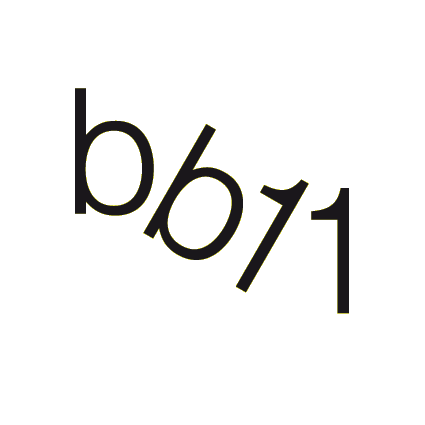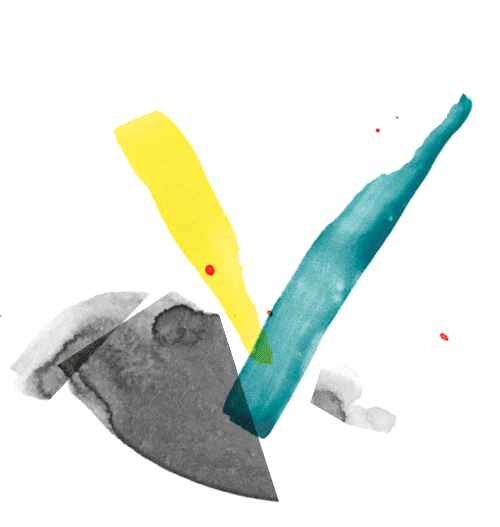

Sign up for our newsletters. You can change the settings or unsubscribe at any time.
Thank you for your subscription. We have sent you an e-mail with a confirmation link.


exp. 1
exp. 2
exp. 3

Azucena Vieites
Venue: KW Institute for Contemporary Art
Azucena Vieites
Born 1967 in Hernani, ES – lives and works in Madrid, ES
As the cofounder of the Erreakzioa-Reacción collective and femzine, Azucena Vieites works with editing processes that cut across all her media. Drawings, texts, publications, serigraphs, and papers are taped to the walls or placed in glass cases, borrowing from the seriality of minimalist practices. Overlapping, repeating, torn into fragments, Vieites’ combinations of images and text are poised between meaning and noise, between abstract and referential. From big sheets to tiny drawings, from large installations to hand-held zines, her free play with scale and materials parallels the feminist politics of not differentiating between personal and political or private and public: small can be big. Vieites’ longstanding alliance to queer feminist politics and associated subcultures is referenced in her work and underscored by her DIY/copy-shop aesthetic.
Accordingly, her practice is open and collaborative, especially in the context of her interests in publishing and the uninhibited attitudes of children towards gender roles. Many of her exhibitions are accompanied by workshops that she conducts with children, who both produce their own images and color in her drawings. She also creates zines with them. In A World (2020) Vieites reworks the combined results of these workshops for her installation of collages and serigraphs, which are distilled from a layering of references and authorships.
Within these open-ended processes, Vieites is essentially asking how history might be told differently if we did not believe in binary narratives. Can we create an alternative history, one that can gather and connect what anarchists call “radical moments:” instants, images, quotes, songs, historical splinters, the various non-stabilized materials that the history of progress failed to integrate into the present?
Lucrecia Palacios
BLM KOREA ARTS
#BlackLivesMatter #BLMKoreaArts
Young-jun Tak
Statement
II: La Solidaridad va Más Allá de un Concepto. Entre las Curadoras de la XI Berlin Biennale
Lisette Lagnado, Agustín Pérez Rubio
Conversation
Flávio de Carvalho: Fazenda Capuava
Archive of Lisette Lagnado
Photographs
Glossary of Common Knowledge
L’Internationale Online
Glossary
COVID-19 VIDEOS
Carlos Motta
Video
THE MOBILIZATION
Nicolás Cuello
Text
By using this website you agree to the use of cookies in accordance with our data privacy policy.

Azucena Vieites
Venue: KW Institute for Contemporary Art
Azucena Vieites
Born 1967 in Hernani, ES – lives and works in Madrid, ES
As the cofounder of the Erreakzioa-Reacción collective and femzine, Azucena Vieites works with editing processes that cut across all her media. Drawings, texts, publications, serigraphs, and papers are taped to the walls or placed in glass cases, borrowing from the seriality of minimalist practices. Overlapping, repeating, torn into fragments, Vieites’ combinations of images and text are poised between meaning and noise, between abstract and referential. From big sheets to tiny drawings, from large installations to hand-held zines, her free play with scale and materials parallels the feminist politics of not differentiating between personal and political or private and public: small can be big. Vieites’ longstanding alliance to queer feminist politics and associated subcultures is referenced in her work and underscored by her DIY/copy-shop aesthetic.
Accordingly, her practice is open and collaborative, especially in the context of her interests in publishing and the uninhibited attitudes of children towards gender roles. Many of her exhibitions are accompanied by workshops that she conducts with children, who both produce their own images and color in her drawings. She also creates zines with them. In A World (2020) Vieites reworks the combined results of these workshops for her installation of collages and serigraphs, which are distilled from a layering of references and authorships.
Within these open-ended processes, Vieites is essentially asking how history might be told differently if we did not believe in binary narratives. Can we create an alternative history, one that can gather and connect what anarchists call “radical moments:” instants, images, quotes, songs, historical splinters, the various non-stabilized materials that the history of progress failed to integrate into the present?
Lucrecia Palacios
COVID-19 VIDEOS
Carlos Motta
Video
Queer Ancient Ways: A Decolonial Exploration
Zairong Xiang
Monograph
III: La familia son quiénes se alegran con nuestros actos diarios. Detrás de las curadoras de la XI
María Berríos, Agustín Pérez Rubio
Conversation
IV: How Fear Can Dismantle a Body. Vis-a-Vis with two of four curators of the 11th Berlin Biennale
María Berríos, Lisette Lagnado
Conversation
#fight4rojava
Graffiti
THE MOBILIZATION
Nicolás Cuello
Text
By using this website you agree to the use of cookies in accordance with our data privacy policy.

Azucena Vieites
Venue: KW Institute for Contemporary Art
Azucena Vieites
Born 1967 in Hernani, ES – lives and works in Madrid, ES
As the cofounder of the Erreakzioa-Reacción collective and femzine, Azucena Vieites works with editing processes that cut across all her media. Drawings, texts, publications, serigraphs, and papers are taped to the walls or placed in glass cases, borrowing from the seriality of minimalist practices. Overlapping, repeating, torn into fragments, Vieites’ combinations of images and text are poised between meaning and noise, between abstract and referential. From big sheets to tiny drawings, from large installations to hand-held zines, her free play with scale and materials parallels the feminist politics of not differentiating between personal and political or private and public: small can be big. Vieites’ longstanding alliance to queer feminist politics and associated subcultures is referenced in her work and underscored by her DIY/copy-shop aesthetic.
Accordingly, her practice is open and collaborative, especially in the context of her interests in publishing and the uninhibited attitudes of children towards gender roles. Many of her exhibitions are accompanied by workshops that she conducts with children, who both produce their own images and color in her drawings. She also creates zines with them. In A World (2020) Vieites reworks the combined results of these workshops for her installation of collages and serigraphs, which are distilled from a layering of references and authorships.
Within these open-ended processes, Vieites is essentially asking how history might be told differently if we did not believe in binary narratives. Can we create an alternative history, one that can gather and connect what anarchists call “radical moments:” instants, images, quotes, songs, historical splinters, the various non-stabilized materials that the history of progress failed to integrate into the present?
Lucrecia Palacios
Queer Ancient Ways: A Decolonial Exploration
Zairong Xiang
Monograph
IV: How Fear Can Dismantle a Body. Vis-a-Vis with two of four curators of the 11th Berlin Biennale
María Berríos, Lisette Lagnado
Conversation
St Sara Kali George
Delaine Le Bas
Soundscape
Glossary of Common Knowledge
L’Internationale Online
Glossary
Invitation to the Species: Cecilia Vicuña
Tamaas / Cecilia Vicuña
Podcast
Grupo Experimental de Cine en acción
Gabriel Peluffo
Drawing
By using this website you agree to the use of cookies in accordance with our data privacy policy.

Azucena Vieites
Venue: KW Institute for Contemporary Art
Azucena Vieites
Born 1967 in Hernani, ES – lives and works in Madrid, ES
As the cofounder of the Erreakzioa-Reacción collective and femzine, Azucena Vieites works with editing processes that cut across all her media. Drawings, texts, publications, serigraphs, and papers are taped to the walls or placed in glass cases, borrowing from the seriality of minimalist practices. Overlapping, repeating, torn into fragments, Vieites’ combinations of images and text are poised between meaning and noise, between abstract and referential. From big sheets to tiny drawings, from large installations to hand-held zines, her free play with scale and materials parallels the feminist politics of not differentiating between personal and political or private and public: small can be big. Vieites’ longstanding alliance to queer feminist politics and associated subcultures is referenced in her work and underscored by her DIY/copy-shop aesthetic.
Accordingly, her practice is open and collaborative, especially in the context of her interests in publishing and the uninhibited attitudes of children towards gender roles. Many of her exhibitions are accompanied by workshops that she conducts with children, who both produce their own images and color in her drawings. She also creates zines with them. In A World (2020) Vieites reworks the combined results of these workshops for her installation of collages and serigraphs, which are distilled from a layering of references and authorships.
Within these open-ended processes, Vieites is essentially asking how history might be told differently if we did not believe in binary narratives. Can we create an alternative history, one that can gather and connect what anarchists call “radical moments:” instants, images, quotes, songs, historical splinters, the various non-stabilized materials that the history of progress failed to integrate into the present?
Lucrecia Palacios
Feminist Health Care Research Group
Web archive
#fight4rojava
Graffiti
Touching Feeling. Affect, Pedagogy, Performativity
Eve Kosofsky Sedgwick
Monograph
Género y colonialidad en busca de claves de lectura y de un vocabulario estratégico descolonial
Rita Segato
Essay
New Look
Flávio de Carvalho
Performance
A World Without Bones
Agustín Pérez Rubio
By using this website you agree to the use of cookies in accordance with our data privacy policy.
By using this website you agree to the use of cookies in accordance with our data privacy policy.




